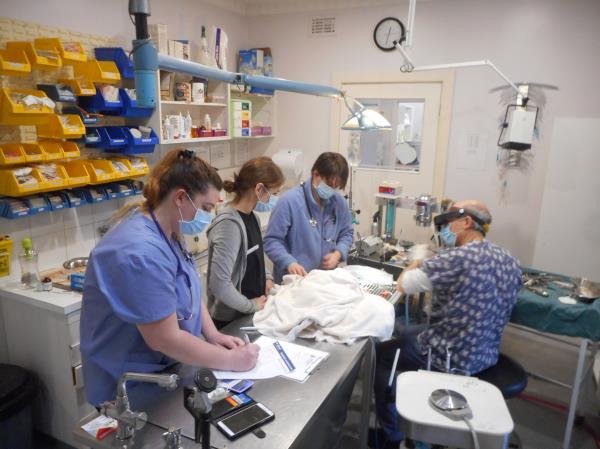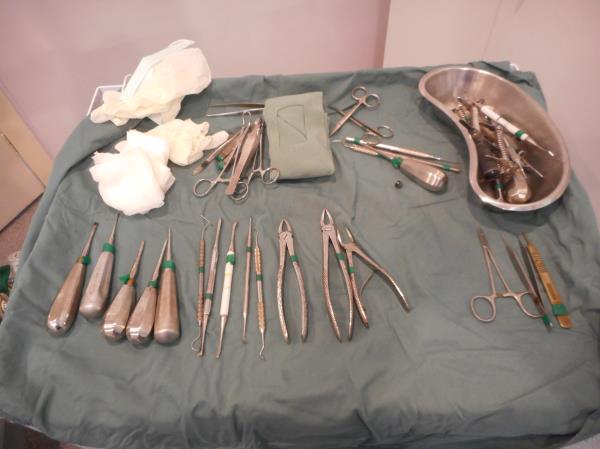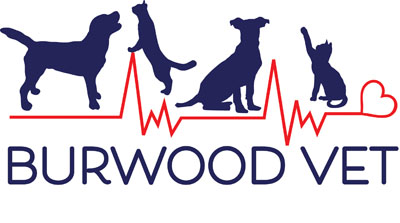Feline Dentistry – Cat Dentist
If your cat has dental disease or a toothache, you may not notice it !!
At the annual vaccination, a feline dental exam and health check-up is done. Dr Phil is experienced in cat dentistry.
A bad smell from our cat’s teeth, reline dental tartar build-up m red gums in a cat can sign f feline dental disease.
A cat dental check-up may highlight the need for a feline dental with ultrasonic scaling polishing, tooth extractions etc
often a change in diet to a feline tooth diet is recommended.
A pet feline will laterally live longer with healthy teeth and gums. Dental disease leads to kidney failure, liver and heart disease.


Veterinary Dentists
Treating the feline oral cavity as feline dentist or cat dentist requires a good dental knowledge background as very gentle oral tissue handling and gentle ultrasonic scaling and polishing of the cats tiny mouth. The feline oral cavity is sensitive and delicate.
Cats have three unique veterinary syndromes
- Forls – Feline tooth resorption – where the tooth is eaten away from the inside, it is very common,
- Feline lymphocytic plasmocytic gingivitis stomatitis – essentally a very painful swollen oral cavity, see the following link
- and lastly eosinophilic granuloma complex,
Dr Phil now lives in Melbourne and enjoys doing dentistry in dogs and cats. The burwood based veterinary hospital has a dental unit and uses dental surgical kits.
Dentistry is a rapidly growing area of veterinary science. We have seen a greater awareness over the last 25 years of its importance to the overall health of the animals we treat.
Just like humans, pets’ teeth need looking after too! The health of their teeth and gum’s has a significant impact on their overall quality of life. Imagine how your mouth would feel, and smell, if you never brushed your teeth. Imagine having a really bad toothache and not being able to tell anyone about it!
Dental disease begins with a build up of bacteria in your pet’s mouth. Bacteria, combined with saliva and food debris, can cause plaque to accumulate on the tooth. As calcium salts are deposited, plaque turns to tartar (brown or yellow material starting near the gum line of the tooth). Without proper preventive or therapeutic care, plaque and tartar build-up leads to periodontal disease, which affects the tissues and structures supporting the teeth. Periodontal disease can cause oral pain, tooth loss and even heart or kidney problems.
Signs of dental disease, in order of severity, include:
- Cats will still usually eat with very painful mouths !
- often no symptoms even with painful disease
- Yellow-brown tartar around the gumline
- Inflamed, red gums
- Bad breath
- Change in eating or chewing habits (especially in cats)
- Pawing at the face or mouth
- Excessive drooling
- Pain or bleeding when you touch the gums or mouth
If your pet is showing any of these signs of dental disease please book an appointment to see one of our veterinarians. Early assessment and action can save your pet’s teeth!
How can I prevent dental disease?
Long-term control and prevention of dental disease requires regular home care. The best way to begin this is to accustom your pet from an early age. Dental home care may include:
- Sart gently wiping your kittens upper teeth with a tissue or soft cloth – as Dr Phil recommends – Tis is the easiest to to and accepted by the disourning cat.
- Brushing teeth daily – just like us! This is the best form of dental hygiene. Pet toothbrushes and toothpaste are now available. Please do not use human toothpaste formulas on your pet as they are not designed to be swallowed and may be toxic.
- Feed pets raw meaty bones or special dental diets. This can help reduce the accumulation of tartar.
- Use dental toys, enzymatic chews, or teeth cleaning biscuits, all of which may help keep the teeth clean.
Regular and frequent attention to your pet’s teeth may avoid the need for a professional dental clean under anesthetic, and will also improve your pet’s overall health.
What does a professional dental clean involve?
It is the same as a scale and polish done by a dentist for us. However, unlike us, our pets won’t sit still or open their mouth to allow a comprehensive cleaning of their teeth. For this reason our pets need to have a general anaesthetic for a dental examination – with each tooth probed and pridded like dentits do to people .
The degree of dental disease will be assessed to determine if extractions, antibiotics and anti-inflammatories will be required.
The assessment may also include a physical exam, blood tests and urine tests to ensure they are healthy prior to having an anaesthetic. Once anesthetized, we can give the teeth a scaling and follwed by polishing using our veterinary dental equipment. When your cat goes home we will also discuss methods of reducing dental disease in the future.
If you have any questions about dental care or professional cleaning contact us.
Feline Dentistry – Cat Dentist
If your cat has dental disease or a toothache, you may not notice it !!
At the annual vaccination a feline dental exam and health check-up is done . Dr Phil is experienced in cat dentistry.
A bad smell from our cats teeth, reline dental tartar build-up m red gums in a cat can be signs f feline dental disease.
A cat dental check up may highlight the need for a feline dental with ultrasonic scaling polishing, tooth extractions etc
often a a change in diet to a feline tooth diet is recommended.
A pet feline will literally live longer with healthy teeth and gums. Dental disease leads to kidney failure, liver and heart disease.
